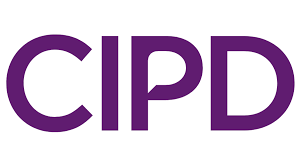Are you looking for that little bit extra from your accountant?
Would you like an accountant that cared about your business' success as much as you do?
Xero Services
-
Your Xero
ButtonNeeding a better way to do business? Xero offers an ideal solution to Cloud accounting. As experts, we'll get you up and running in no time.
-
Xero Training
ButtonWant to learn more about how Xero could help your business, as a new or established company? Our training service helps you get the most out of the software.
-
Gold standard
ButtonAs one of the few Xero Gold Partners in Gloucestershire, we have the experience and knowledge to offer the very best expert accounting advice.
Our Services
-
Management Accounts
ButtonOur Management Accounting Service is tailored to your specific needs, so you can focus on running your business, while receiving up-to-date management information.
-
Taxation
ButtonWe understand that all our clients wish to reduce their tax liability. We aim to minimise your tax liability and help all our clients with proactive tax planning.
-
Annual Accounts
ButtonEnsure you know how your business has performed over the last year. Our Annual and Statutory Accounts preparation service is ideal for sole traders, partnerships, and limted companies.
-
Human Resources
ButtonNeed help with staff handbooks and contracts but don't need the HR department overheads? Our HR Specialist service means you can grow at a pace to suit your business needs.
-
Bookkeeping
ButtonBookkeeping, Payroll and VAT Returns are all essential aspects of operating a company - we can take on the burden of all the day-to-day finance activities so you can get on with business.
-
Business Start-ups
ButtonStarting out is an exciting time in business, we will spend time with you to ensure you get your business off to the best possible start. We can help choose the right company structure and system for you.
-
Wealth Management
ButtonNeed some Independent Financial Advice? We can assist you with your wealth management needs.
Client Case Studies

“
I first hired Andrew as a new sole trader in 2012. His expertise and knowledge was evident from the outset, and this reassured me as a newly self employed person. Andrew is personable and open, and took time to understand my business and accountancy needs. I trust Andrew’s advice and information, and he continues to offer support in helping me to develop my business. My husband has recently become a sole trader and is also using Andrew’s accountancy services. I would highly recommend Andrew to anyone needing financial management or accountancy services.
Marie Brobyn
“
Thank you Andrew for your support & professionalism during my recent planning application at my equestrian business, as you know it all hinged on the financial viability of the business. Both consultants that dealt with the application for me commented that they had never worked with any accountant that had been so amenable & willing to help whilst also realising the importance that speed of response was of the essence.
Sharon Thomas, Burley Lodge Stables
“
I switched my business and personal accounting services to Andrew at ADM Accountancy this year after a recommendation from a friend. The service has been excellent in every respect and I have no hesitation in recommending Andrew at ADM for anybody self-employed or owning / running a SME business.
Phil Lynn, PML Projects Ltd
“
Andrew has been involved with Williams Windows from the outset and his advice and guidance has been fantastic and we would not hesitate to recommend him to any other business, new or old. Andrew responds immediately to any requests we make of him and suggests ways to make our business more tax efficient. We look forward to a long business relationship with ADM Accountancy Services.
Ian & Roz Williams, Williams Windows
“
Andrew is extremely knowledgeable and trustworthy. He’s helped and advised me on numerous occasions. He provides a considered accountancy service that meets all my financial needs and helps develop my business going forward. I wholeheartedly recommend him to anyone looking for accountancy services.
Kelly Owen, Ultimate Proof Ltd
“
Andrew is always accessible when I require advice or information. He is like a safety net for my inexperience in accountancy! He is polite, helpful and efficient and I can always rely on him. He gives me confidence when I am in doubt. I wouldn’t be a successful business without him.
Carol Hunt, Glos Little Ducklings
Our Blog



Can we help? Let’s talk.
ADM Accountancy Services Ltd.





